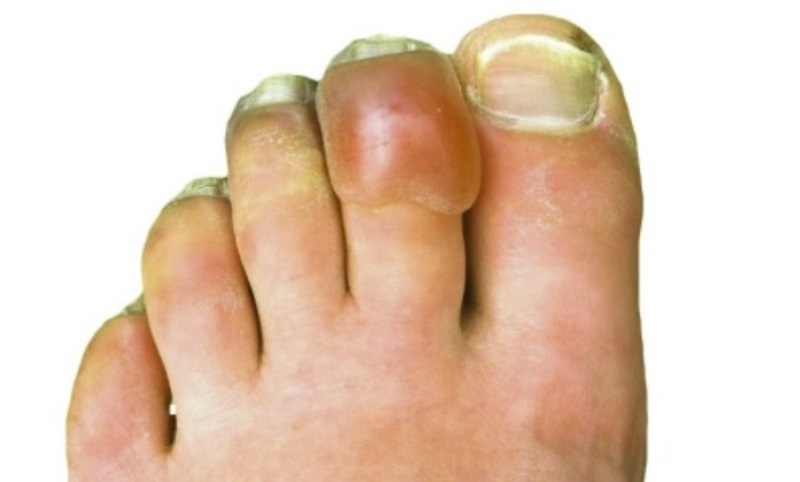“Fatigue is one of your body’s primary alarm systems. Just like pain or fever, persistent head-to-toe tiredness should alert you that something is amiss. While many daily habits can set you up for insidious energy leaks and cycles of exhaustion, a variety of hidden medical and psychiatric causes could also be contributing to your lack of get-up-and-go.” – Dr. Holly Phillips, author of the soon-to-be-released book The Exhaustion Breakthrough
We are all stuck in a rut of daily habits that are constantly ruining our body’s ability to fight fatigue, stay energized and meet life with a smile. In fact, we are so badly stuck in this rut that fighting fatigue and surmounting all obstacles to get to a healthy, hearty place seems an almost impossible feat. Dr. Phillips recommends maintaining a fatigue diary to help accomplish the Herculean feat of beating fatigue and rising fresh and energized to sunshine each morning. Keeping track of one’s sleep cycles, fatigue bouts, ebb and flow of stress levels, physical activities, diet and drinking habits and the graph for energy flow throughout the day can help decipher patterns and in turn, treat it. While consistent fatigue and drained energy levels should be brought to the doctor’s notice, there are a few things you can do to monitor how your daily habits may be contributing toward an energy drain and how you can kick those toxic habits to the curb and be on your path to greater well-being.
Suggested read: All the amazing health benefits of the superfood, quinoa
Here’s how:
1. Inconsistent sleeping

Image source: Pixabay, under Creative Commons License
It is no revelation that a lack of sleep can make you feel like your body’s running on an empty tank. But it is equally important that you maintain a consistent circadian rhythm (sleep-wake cycle) for your body or else the difference in the times between going to bed and waking up can zap your body of energy, akin to a jet lag without even leaving the covers.
What you can do: Stick to a consistent sleep-wake routine without altering the difference between your sleeping and waking schedules through the week, and varying it by no more than an hour on weekends.
2. Poor eating habits

Image source: Google, copyright-free image under Creative Commons License
Again, it takes no genius to figure that skipping meals, hogging on junk food and loading up on crabs, processed foods or sugar can take a toll on your body by upping your sugar levels and sending your nutrient stack on a whiz. If you do not plan a healthy balanced diet, you are cheating your body of its energy sources and keeping it deprived of the fuel (nutrients and essentials) it needs in order to function well.
What you can do: Plan a healthy mix of protein, carbohydrates and healthy fats in your diet and eat small portions, at regular interims (ideally five to seven times a day). Make sure you opt for nutrient-rich choices and include a lot of seasonal veggies and fruits in your intake.
3. Catastrophic thinking

Image source: Pixabay, under Creative Commons License
Thinking too much is a chronic disease that ails most of our generation. Catastrophizing a possible outcome, jumping to conclusions and over thinking a situation can only strip your energy levels and bring you down.
What you can do: Fashion a makeover for your negative thought processes. Ask yourself poignant questions about why you fear a possible outcome, whether the situation would matter in the long run and whether there’s evidence for you to believe the odds aren’t going to be in your favor. If so, reason your way to making the best of a situation and not add to your stress levels.
4. Sedentary lifestyle

Image source: Pixabay, under Creative Commons License
Spending long periods doing nothing and sitting idle can cause your body to equate your sedentary state with a desire to sleep. This can cause your breathing and heart rates to slow down, bringing down blood circulation and hence, flow of nutrients and oxygen to brain and body tissues thereby causing listlessness and exhaustion.
What you can do: You can exercise every day, for at least an hour. Opt for walking every day, stick to routines that allow for visiting colleagues rather than digital interaction and take breaks throughout the day to get up, stretch and intervene in the static nature of your sedentary lifestyle.
5. Being dehydrated

Image source: Pixabay, under Creative Commons License
People do not take the intake of water as seriously but even a one percent drop in optimal fluid retention levels in the body can cause fatigue, drop in mood, headaches, concentration problems or even blackouts. Fluid loss can also create a drop in blood volume, thereby making your heart work harder to push the same amount of oxygen and nutrients through the body, thereby causing energy levels to drop even further.
What you can do: Amp up your water intake by drinking at least eight to ten glasses of water every day. You can also consume cucumber, watermelons and other foods, high on water content to stay hydrated. You can also make water more appealing by opting for mildly fruit-flavored options or adding in lemon or orange wedges or cucumber slices.
6. Irregular breathing
When you breathe in shallow, irregular gasps, you tend to lower the levels of oxygen intake and up the carbon dioxide content in your blood. This can lead to a lack of oxygen and essential nutrients in your brain and body tissues, causing a definite ebb in your energy levels.
What you can do: Practice efficient breathing through the diaphragm by exercising a full inhalation-exhalation exercise twice a day. Alternatively, you could consider breathing exercises vis-à-vis meditation and yoga. This should help you amp up the oxygen intake and breathe efficiently.
7. Staying digitally connected 24×7

Image source: Google, copyright-free image under Creative Commons License
Science has proven that being constantly accessible on the phone, mail and/or other digital platforms adds to stress. The exposure to screen light stimulates brain activity, thereby suppressing the release of the sleep-inducing hormone melatonin. Also, working on a laptop, PC or any handheld device for long periods can cause stiffness, headache and fatigue.
What you can do: Take breaks from work and/or digital exposure and turn your devices off before going to bed.
Suggested read: For real weight loss, take a walk
8. Overdoing the ‘yes’
If you are a chronic ‘yes’ person like me, you may find yourself constantly overwhelmed by the ‘to-do’ lists on your stash of ‘things to do.’ If that causes you to feel overworked all the time, it may be time to pause and reconsider how many of these yes-es shouldn’t be passed down.
What you can do: Set limits to how much you can achieve with your limited pool of time, energy and resources. Delegate work wherever possible and prioritize tasks that are important.
Let us know if making these changes to your daily habits helps in an energy-tank refill. Coz we are already making space for the ‘thank you’ notes!
Featured image source: Google, copyright-free image under Creative Commons License













